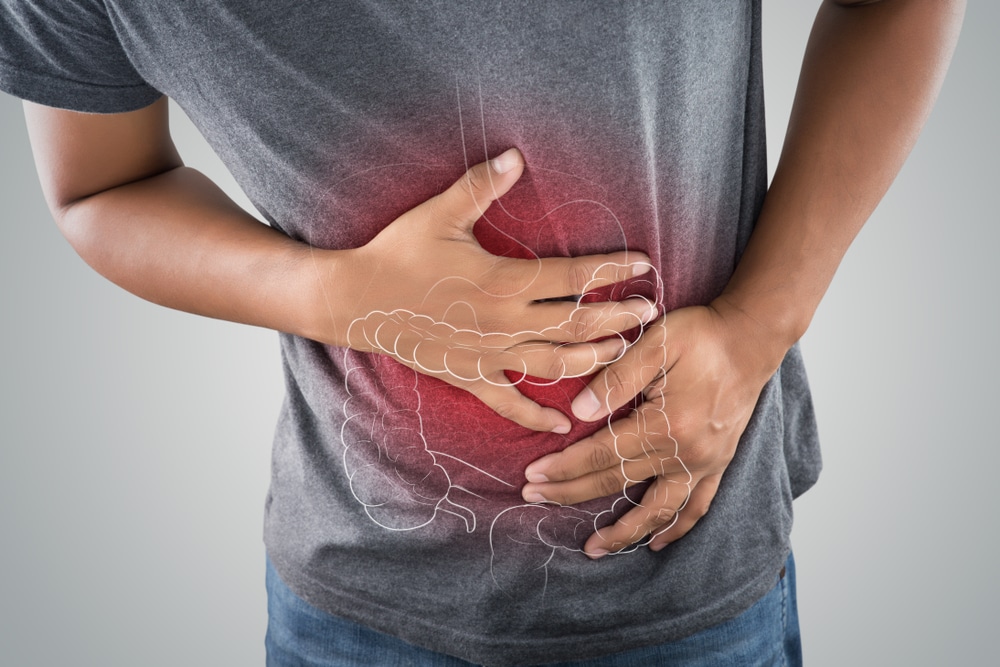Is having diarrhoea every day a sign of a serious medical condition?
Recurrent diarrhoea could warrant a visit to a gut clinic.
Is having diarrhoea every day a sign of a serious medical condition?
Recurrent diarrhoea could warrant a visit to a gut clinic.
What is diarrhoea?
Diarrhoea is when you have frequent bowel movements and pass watery stools. This condition can be acute or chronic, lasting from just a few days to several weeks.
Diarrhoea could also stem from a bacterial or viral infection in the gut or even be triggered as an immune response to a food allergy.
Some people with gastrointestinal conditions like irritable bowel syndrome (IBS), or Crohn’s disease may experience frequent or severe bouts of diarrhoea.
Diarrhoea alone may not be a cause for concern, but if these symptoms occur along with it, you should consider visiting a gastrointestinal specialist.
Symptoms of diarrhoea
Watery stools are usually the most prominent symptom of diarrhoea, but patients may experience the following symptoms as well:

Nausea

Fever

Dehydration

A constant need to empty your bowels

Bloating
Should I be worried if I have diarrhoea every day?
Chronic diarrhoea may be a more serious condition than acute diarrhoea, especially if it goes untreated for a long time.
Individuals with chronic diarrhoea may have an underlying condition that is causing them to have diarrhoea frequently. It may be associated with IBS which is not a life-threatening condition, although the patient’s quality of life may be affected.
Chronic diarrhoea could also be caused by ulcerative colitis, a condition that causes the large intestine to become inflamed and develop ulcers that could eventually result in bloody stools.
Having diarrhoea every day is dangerous. When a person passes watery diarrhoea frequently, they risk losing a large quantity of water from their bodies, leading to dehydration which is especially dangerous for children and people with weak immune systems.
Having frequent bouts of diarrhoea is a cause for concern and should be dealt with as soon as possible.

How can I treat diarrhoea?

Although chronic diarrhoea requires medical attention, there are a few ways you can help your body cope as well. Here are some of your options.
Hydration: The body loses water from diarrhoea, so water needs to be replenished. For severe cases of diarrhoea, the patient may receive a hydration solution intravenously or orally for mild cases.
Probiotics: Probiotics may help introduce more healthy gut bacteria into the gastrointestinal system. Foods like cheese, yoghurt and special probiotic drinks are rich in “good” bacteria.
Medication: After speaking to a healthcare professional, patients may get treatment in the form of over-the-counter medications, like bismuth subsalicylate and loperamide; these medications do not cure diarrhoea but can provide some relief.
Should I visit a gastrointestinal clinic?
Many gastrointestinal conditions could trigger frequent diarrhoea and some of them may cause serious health problems if they are not diagnosed on time.
Diseases like Crohn’s disease and ulcerative colitis are difficult to treat without any professional help and they can become life-threatening if left untreated.
Visiting a gut clinic may be the best course of action to help you with your frequent diarrhoea and help you identify any unseen medical conditions before it’s too late.
Seek help from the Sydney Gut Clinic
The Sydney Gut Clinic has a team of highly qualified and experienced gastrointestinal specialists who are trained in diagnosing and treating many kinds of gastrointestinal conditions.
If you have been experiencing frequent diarrhoea, make an appointment with us today and learn about your treatment options.
Areas of Expertise
Specialist Consulting
Sydney Gut Clinic comprises a team of highly trained, skilled and experienced gastrointestinal specialists. Our practitioners are carefully selected for their areas of speciality.
Endoscopic Evaluation
The team at Sydney Gut Clinic also specialises in endoscopic evaluation. We undertake investigation, diagnosis, and treatment using procedures like the colonoscopy or endoscopy.
Inflammatory Bowel Disease
Our expertise also extends to bowel diseases such as Inflammatory Bowel Disease or IBD. We recommend specialised treatment strategies that help you manage your symptoms.
Bowel Cancer Screening and FOBT
At Sydney Gut Clinic, we conduct extensive bowel cancer screening, including Fecal Occult Blood Tests (FOBT) for patients with a history of this condition or are demonstrating the relevant symptoms.
Hepatology
Our hepatology specialists are trained to detect, diagnose and treat common conditions that affect the liver, gallbladder, and pancreas. They can also assist you with preventative healthcare strategies.
Irritable Bowel Syndrome
Many of our specialists specialise in IBS and can provide you with guidance on prevention strategies, diet and stress management, as well as holistic treatment.
Intestinal Parasite Treatment
At the Sydney Gut Clinic, we provide you with treatment strategies to address the symptoms you may be experiencing as a result of a parasitic infection in your digestive system..
Colorectal Surgery
Our team of specialists have been trained to perform colorectal surgery to help patients heal from symptoms of medical conditions that affect the colon, rectum or anus. It’s also used as part of cancer treatment.
FAQ
Are frequent bowel movements a cause for concern?
Frequent bowel movements may be a sign of an underlying health condition. If bowel movements remain frequent for a long time, a visit to a gastrointestinal doctor is advisable.
Is there any medication for fast relief from diarrhoea?
- Take antidiarrhoeals such as Imodium or Pepto-Bismol.
- Eat probiotic foods, like yoghurt.
- Eat bland, low fibre food such as apples, bananas, toast and rice.
How long does it take for stomach pain and diarrhoea to go away?
Normally, diarrhoea goes away after two to four days in adults but some cases may last up to a week.
What are the most common causes of chronic diarrhoea?
Chronic diarrhoea may be a symptom of gastrointestinal conditions such as:
- Inflammatory bowel disease
- Bowel infections
- Food allergies
- Irritable bowel syndrome
- Gut parasites
Consult our specialists for the diagnosis and treatment of upper belly bloating after eating
Sydney Gut Clinic services are only available to patients in Australia.










